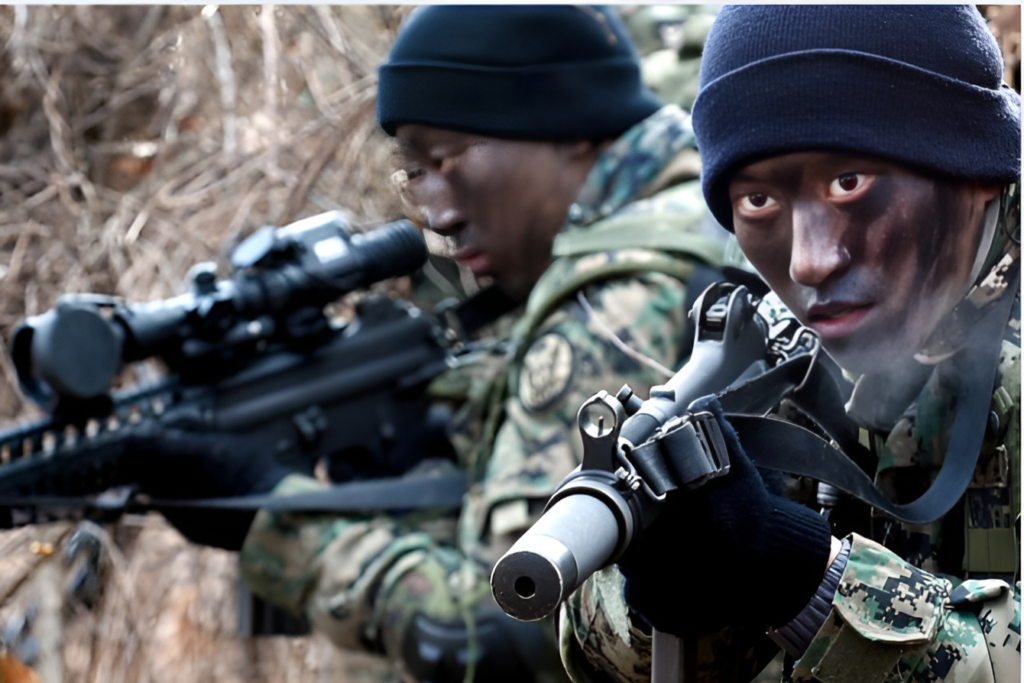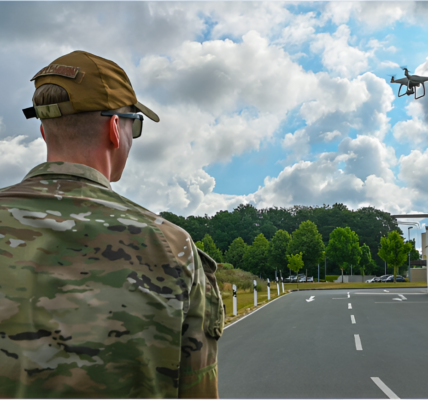
Since the outbreak of the Russian-Ukrainian War in February, military veterans from across the globe have found their way to Ukraine, some operating within the confines of official international support, while others have gone rogue to lend their aid to the Ukrainian forces. While countries like the U.S. and Britain have deployed special forces and intelligence operatives to offer crucial support, individual volunteers have also taken matters into their own hands, crossing international boundaries to join the fight against Russian forces. Among these volunteers, a group of South Korean nationals with military training, including former special operations personnel, have made their way to Ukraine, defying their government’s warnings.
One of the most prominent figures among them is Rhee Keun, a 38-year-old former naval special operations officer from South Korea. Born in the U.S., Rhee had served with South Korea’s elite Marine Special Forces before becoming a social media personality with significant followings on YouTube and Instagram. In early March, Rhee announced his intent to travel to Ukraine to assist in the fight, despite knowing the South Korean government’s firm stance against its citizens joining foreign conflicts. South Korea had banned its citizens from traveling to Ukraine and its neighboring conflict zones, warning of potential criminal prosecution.
Undeterred, Rhee and several fellow ex-soldiers made their way to Ukraine via unofficial routes. By March 7, Rhee posted on Instagram, announcing that “our team safely arrived in Ukraine. We’ll fight on the frontlines,” even as the South Korean government threatened to revoke their passports. The Ministry of Foreign Affairs in Seoul soon launched an investigation into the matter, demanding the return of these rogue fighters.
Tragically, by March 13, reports surfaced of a devastating Russian missile strike on facilities near the Polish border that killed up to 180 foreign combatants, the majority of whom were from Western countries. South Korean nationals were among those confirmed dead, including Rhee’s group. The Brazilian news agency that reported the incident described seeing “special forces from all over the world” among the casualties. For a brief period, Rhee was presumed dead, but he later posted on Instagram, confirming he was alive, though his comrades had returned to Korea.
Rhee’s case brought significant attention to the growing presence of South Korean nationals in the conflict. His social media presence made his actions widely public, but others remained more elusive. While Rhee’s journey is well-documented, there have been unverified reports of additional South Korean fighters, including former special forces, joining the battle on Ukrainian soil, in clear violation of their own government’s laws. Despite official restrictions, these individuals have reportedly been involved in combat operations, some likely operating under assumed identities to evade detection.
South Korea’s government has faced mounting pressure to take action, with a poll showing that over half of the South Korean public believes Rhee should be prosecuted. The tension surrounding his decision to fight in Ukraine has not only raised questions about individual defiance of government orders but also the broader involvement of South Korean nationals in the conflict. This issue gains even more significance in light of recent reports indicating North Korea’s increasing support for Russia’s war effort, making the participation of South Koreans in the Ukrainian fight all the more politically charged.
As South Korea grapples with the implications of its citizens taking matters into their own hands, the story of Rhee Keun and his fellow special forces operatives highlights a broader trend of foreign volunteers drawn to the frontlines of one of the most intense conflicts in recent history. With the South Korean government considering further legal actions, the involvement of these rogue combatants remains a complex and divisive issue both at home and abroad




